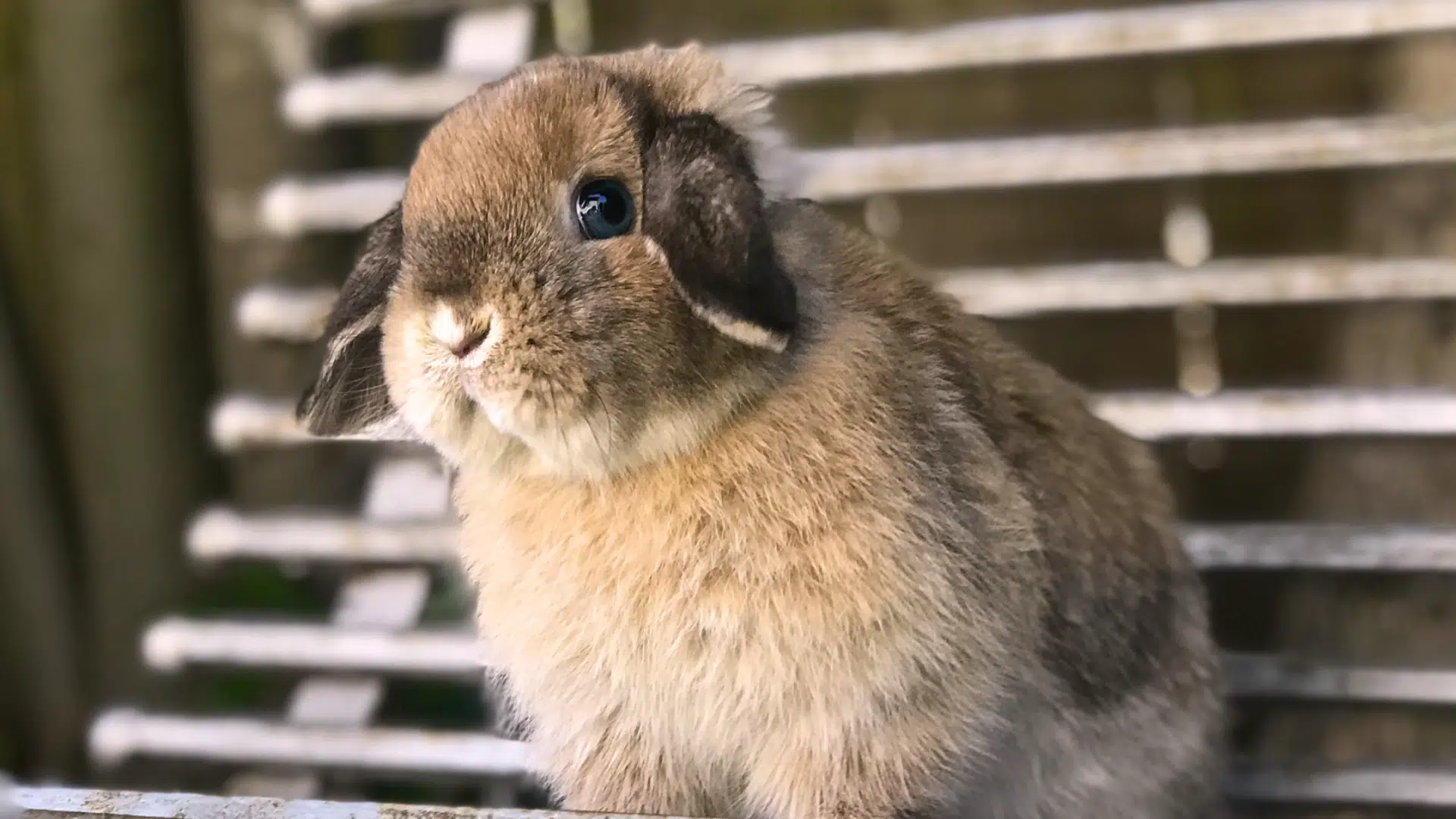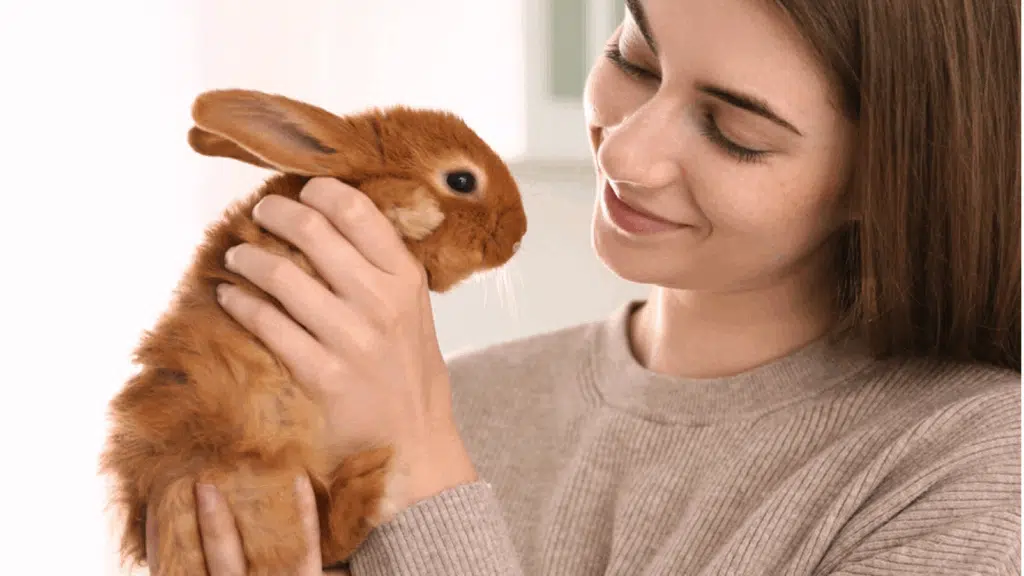Many people fall in love with bunnies at first sight; their soft fur, twitching noses, and calm nature make them hard to resist. They seem like the perfect pet: small, quiet, and easy to care for.
But living with a rabbit is different from what most people expect. This guide looks at what it’s really like to have a pet bunny. You’ll learn:
- The pros and cons of owning one
- How much care and space do they need
- What kind of home suits them best
Bunnies can be loving, curious companions, but they also need time, attention, and the right setup to stay happy.
By the end of this article, you’ll have a clear idea of whether a bunny fits your lifestyle or if another pet might be a better choice.
What Makes Bunnies Popular as Pets?
I get why so many people love having bunnies as pets. They’re quiet, gentle, and surprisingly affectionate once they trust you.
Bunnies don’t bark or meow, so they’re great if you live in an apartment or want a calm pet around the house.
I’ve seen how playful they can be; they enjoy hopping around, exploring new places, and nudging you when they want attention.
Their small size and gentle nature make them easy for kids to handle.
What I like most is how rabbits can form strong bonds with their owners. They recognize your voice, follow you around, and even ask for pets in their own little ways.
If you’re patient and kind, a bunny can become a truly loving companion who enjoys your company every day.
The Pros of Owning a Pet Rabbit

Bunnies can make wonderful pets for the right person. They’re gentle, friendly, and fun to have around once you understand their needs.
1. Clean and Quiet
I like that bunnies are clean and quiet pets. You don’t have to worry about barking or loud noises, which makes them great if you live in an apartment or shared space.
They spend a lot of time grooming themselves, keeping their fur clean and soft.
With a little effort, you can even litter-train your rabbit, which helps keep their area tidy. I’ve found that once you set a routine, keeping a bunny’s space clean is much easier than many people expect.
2. Social and Loving
Once a bunny learns to trust you, it becomes very affectionate and loyal. They enjoy gentle pets and quiet company, often sitting close or hopping around your feet.
I’ve noticed that they recognize voices and can even come when called.
The more time you spend with them, the more they open up and show their playful side. It’s rewarding to build that bond and see your bunny grow comfortable and connected with you.
3. Easy Daily Routine
Unlike dogs, rabbits don’t need walks or outdoor runs, which makes them easier to manage for busy people. Their care routine is simple: a balanced diet, a clean litter box, and some playtime each day.
I like giving them space to hop around safely, even indoors.
They don’t take much time to care for once you get into a routine, and in return, they bring calm, steady companionship to your home.
The Cons of Owning a Pet Rabbit
Bunnies are sweet pets, but they also come with a few challenges. Knowing these helps you decide if you’re ready for the daily care they need.
1. Constant Chewing
I’ve learned that rabbits love to chew on almost anything, wires, furniture, and baseboards are all at risk. Their teeth never stop growing, so chewing helps keep them trimmed.
You’ll need to bunny-proof your home by covering cords, blocking off certain areas, and giving them chew toys or wooden blocks.
Without this, they can cause damage or even hurt themselves.
It takes patience and supervision, especially when they’re out exploring. Once you understand this habit, you can manage it and still let them enjoy safe playtime.
2. Delicate Health
Rabbits are fragile animals with sensitive stomachs and teeth, so small problems can become serious quickly.
A change in diet, too many treats, or stress from noise can make them sick. I’ve learned to pay attention to how much they eat and how often they use the litter box; any change can be a warning sign.
Regular vet visits are a must, even if they seem fine. You’ll also need to give them plenty of hay, clean water, and fresh greens daily.
Keeping them healthy takes time and awareness, but it’s worth it when you see them happy and active.
3. Daily Care and Attention
Even though they seem quiet and independent, bunnies need daily attention and interaction to stay happy. They enjoy being part of your day, hearing your voice, hopping around near you, or getting a gentle pat.
If they’re left alone too much, they can get bored, lonely, or anxious.
I’ve noticed they love routines, like being fed and played with at the same time each day. Cleaning their litter box, grooming, and keeping their space fresh also take commitment.
If you like having a pet that fits into your daily rhythm, a rabbit can be a good match, but only if you can give them time and care.
4. Not Ideal for Young Kids
Rabbits look soft and cuddly, but they’re not always comfortable being held. They can get scared easily, especially by sudden movements or loud noises.
I’ve seen how quickly a bunny can panic or kick when picked up the wrong way, which can even injure them. That’s why I think they’re better for older kids or adults who can handle them calmly.
If you have younger children, you’ll need to supervise every interaction and teach gentle touch.
Bunnies can be wonderful pets for families, but only if everyone understands how to treat them with patience and care.
Do Bunnies Get Along with Kids and Other Pets?
From what I’ve seen, bunnies can do great with calm and gentle kids who know how to handle them softly. They enjoy quiet company and light petting, but can easily get scared if a child tries to grab or chase them.
I always remind kids to sit on the floor and let the bunny come to them first. This helps build trust and keeps everyone safe.
When it comes to other pets, it depends on their temperament and energy level.
Dogs that are loud or playful might frighten a bunny, while calm pets like cats or older dogs can often learn to share space peacefully.
I always suggest slow introductions, keep your bunny in a secure area at first, and let them observe each other from a distance. With time and supervision, many rabbits learn to live comfortably alongside other pets.
Common Bunny Health and Grooming Needs
Bunnies stay healthy and happy with the right care and attention. A good routine helps prevent health problems and keeps them comfortable every day.
- Regular Vet Visits: Schedule checkups at least once a year. Rabbits can hide illness well, so early vet care helps catch problems before they get serious.
- Balanced Diet: Feed them mostly hay, with some pellets and fresh greens. A fiber-rich diet keeps their digestion steady and prevents stomach issues.
- Dental Care: Rabbits’ teeth never stop growing. Chewing hay and safe wooden toys helps wear them down naturally and prevents dental pain.
- Nail Trimming: Keep their nails short to avoid snagging or injury. If you’re unsure how, a vet can show you the safe way to trim them.
- Grooming Routine: Brush them weekly, especially if they have long fur. Regular brushing reduces shedding and helps spot early signs of skin or fur problems.
- Watch for Warning Signs: Changes in appetite, droppings, or behavior can signal illness. Contact your vet quickly if something seems off.
Housing and Space Requirements for Rabbits
Bunnies need room to move and play. A safe, bunny-proofed space keeps them active, calm, and healthy without much chewing trouble.
1. Indoor Housing
I prefer keeping bunnies indoors because it’s safer and more comfortable for both you and them. Inside, they stay protected from predators, insects, and extreme weather.
You can also interact with them more often, which helps build trust and makes them feel like part of the family.
I always suggest setting up a roomy pen or dedicating a corner of a room for them. Cover cords, move houseplants out of reach, and provide toys for chewing and digging.
Cleaning their litter box and vacuuming often keeps their space fresh. Indoor bunnies usually live longer and bond better with their owners.
2. Outdoor Housing
Some people choose to keep rabbits outdoors in hutches or large covered pens, but this setup takes extra effort and attention.
You’ll need a sturdy, weatherproof hutch to protect them from the weather and predators. Watch temperatures, heat, and cold can all be dangerous.
Outdoor bunnies need constant access to clean water, fresh hay, and a safe spot to hide from the sun or cold.
If you keep your rabbit outside, spend time with them daily so they don’t feel lonely or forgotten. Regular handling and playtime help them stay friendly and comfortable around people.
Conclusion
Owning a bunny can be rewarding if you understand what it takes. They’re quiet, loving, and fun to watch, but they also need daily care, space, and attention.
The pros include their clean habits, gentle nature, and the strong bond they form with you.
The cons are their chewing habits, delicate health, and need for regular interaction. I’ve found that bunnies thrive with patient owners who give them time, care, and a safe space to move around freely.
If you’re ready for the responsibility and can offer love and consistency, a rabbit can be a wonderful companion.
But if you’re looking for a low-effort pet, a bunny might not be the best fit. Choose thoughtfully, and you’ll find a loyal, sweet friend in your rabbit.








